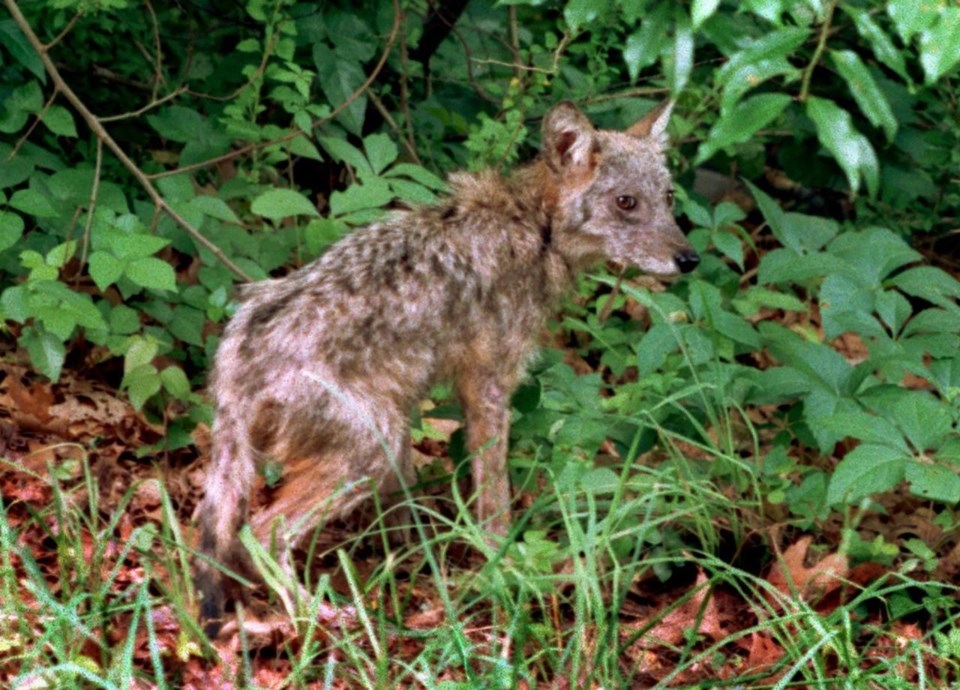A Massachusetts town has decided to become the first in the state to contract with the federal government to kill coyotes locals say have killed pets and become a dangerous nuisance.
Local officials said eight to 12 coyotes inhabit Nahant, a densely settled town of about 3,300 people on a peninsula about 15 miles north of Boston. The animals have killed pets, including three that were taken straight from leashes held by their owners, said Antonio Barletta, the town administrator.
Town officials voted Dec. 7 to enter into an agreement with U.S. Department of Agriculture Wildlife Services to kill the coyotes using rifles. It's the first time a Massachusetts community has pursued such an option, which Barletta said is expected to cost $5,000 to $10,000, depending on how long it takes.
The USDA workers will perform the work at night using night vision equipment in parts of town where the shooting won't pose a threat to residents, Barletta said. The work will likely take place next month, he said.
The decision has drawn criticism from some wildlife advocates, including the Massachusetts Society for the Prevention of Cruelty to Animals. But Barletta said the coyotes are becoming a threat to dogwalkers.
The town is also working on a campaign to help residents coexist with coyotes in the future, Barletta said. That will mean cutting off their food sources and preventing them from becoming too comfortable around humans, he said.
“When an animal becomes too comfortable, it becomes habituated, there's no changing the behavior of that animal," he said. “So you eliminate it and continue to work on the behavior of the ones that remain.”
Coyotes are a animal complaints in New England and many other suburban areas. Wildlife authorities have long discouraged residents from leaving pet food outside for that reason.
Coyotes are killed by the thousands every year, particularly in Western ranching states such as Wyoming and Montana, but such measures are much less commonly employed in the Northeast.
The animals are likely to return to Nahant after the cull, said Elizabeth Magner, associate director of the MSPCA's advocacy team.
“What needs to happen is people need to take wildlife conflict resolution seriously,” said Magner, who described the town's plan as “let's kill some and see what happens.”
The presence of the coyotes has become a hot topic in Nahant, and a Facebook group called “Nahant Coyote Victims” has emerged as a place for residents to post about their encounters with the animals. Other residents have pushed back against the plan and called for the coyotes to be relocated, which Barletta stressed is not possible.
The Massachusetts Division of Fisheries and Wildlife supports the town's plan to eliminate the coyotes, said Dave Wattles, the black bear and furbearer project leader with the division. Nahant's status as a small community at the end of a long causeway likely contributed to the animals becoming habituated to people, he said.
“You have a high number of coyotes living in a very concentrated area with a high number of people," Wattles said. “There's almost forced interaction.”
Patrick Whittle, The Associated Press




